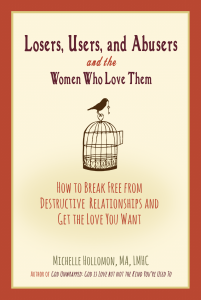Heart thumping, cold sweat, shallow breathing and mind racing. These are the signs of the fight or flight mechanism at its peak. When the brain’s hippo campus recognizes a stimulus as threatening, it sends messages to the body that prepare it to fight, to take flight, or to freeze.
But what if that stimulus produces a low grade of fight, flight, or freeze nearly all the time? What if the brain gets dysregulated and sends signals to the brain to react even when the stimulus is not dangerous?
You end up feeling terrible all of the time.

Anxiety occurs in people for a variety or reasons, including past or present traumatic events, genetic predisposition, or a life of chronic stress. Whatever the cause, the symptoms can be bothersome at best, and debilitating at worst.
An estimated 19% of Americans suffered from an anxiety disorder in the past year. That’s almost 1 in 5 people. Whether you have suffered with anxiety in the past, are being treated for it now, or love someone debilitated by it, chances are you have been affected by the far-reaching tentacles of anxiety.
Last week, we talked about the symptoms and signs of anxiety. Check it out if you missed it by clicking HERE.
Why do I feel this way?
Finding the WHY is not absolutely necessary to solve the problem of anxiety, but it does help quite a bit. It is accepted by psychologcial professionals that anxiety can be caused by a combination of different factors like genetics, faulty cognitions, chemical imbalance, environment factors, and life events. Wanna dig in a little more? Here are some common factors that contribute to the anxiety you may be feeling.
- Past little t traumas. I refer to Little t traumas as those less-than-nurturing things that happened consistently over time. Like the constant criticism of a parent, frequent family moves, or trying hard but being benched each year on the soccer team. These are relatively small traumas to the psyche but when occurring with consistency and frequency, can make for an anxious life.
- Past Big T Traumas- Big T traumas are events most people would consider tragic, de-stabilizing and distressing. Big T traumas are These are things like car wrecks, dangerous predicaments, violent acts, witnessing traumatic events,
- Toxic Relationships– When living or working in a toxic, dysfunctional, or demanding relationship or environment, anxiety can start to take hold. The feeling of being trapped in a dysfunctional relationship can make a person feel inadequate, overly responsible, hyper vigilant, and worried about rejection. Often people will feel powerless to change their relationship situation because they fear the cost would be too great (stress to the kids, financial stress, feelings of failure,) Many people will stay in toxic environments and relationships hoping it will get better, however, their emotional and physical health suffers.
- Feelings of Extreme Powerlessness- Anxiety is always rooted in a sense of helplessness. It’s as if our unconscious believes that we truly have no power, that we are damned if we do, and damned if we don’t. Trapped. Bound. Gagged. We believe things like, “I can’t do anything about it,” “I have no choice,” and “It’s useless.” Our prefrontal cortex, responsible for logic and reasoning, knows this powerless thinking is not completely accurate, but the hippocampus is so busy over-reacting, it overrides logic and stays in a fight/flight spin. The times we feel most powerless, are the times we feel most anxious.
- Chronic Unresolved Stress- relationships, environments, and stressful situations have a “piling on” affect that over time, drain your resources, energy and motivation. The Hope-Disappointment cycle bankrupts what little resources you have left. Adrenal fatigue, PTSD, depression, weight gain, loss of motivation are all signs of working/living/dealing with chronic stress. Demanding work environments, infertility, toxic relationships, living with someone with untreated mental illness, dealing with chronically angry people, unemployment, poverty, bullying are all examples of environments that cause chronic stress.
- Survival Fatigue- Since the Hippocampus is getting all sorts of danger signals… ALL THE TIME… even when there’s no danger, you start to feel like a victim in perpetual survival mode. You say things to yourself like, “Just get through it,” and “just keep going.” Fight/Flight/Freeze is a great mechanism to save your life, but not so good for long periods of time. During survival mode, you may go through phases of hyperarousal and numbness, back to hyperarousal again. Maintaining survival mode can cause anxiety over time.
Depressed yet? DON’T BE! Anxiety is a very treatable condition, and with the right attitude and the right help, you can start gaining control over your anxiety symptoms.

I don’t want to leave you hanging, really I don’t, but I’ve got to break this blog into three parts, so I can do things like eat a real meal, go to bed before midnight, and you know, have a life and stuff. Anxiety is a huge topic with a myriad of treatment techniques, so I will give you the best ones next week. In the mean time, check out these links – this one on communication and this one on healing from a toxic relationship .







